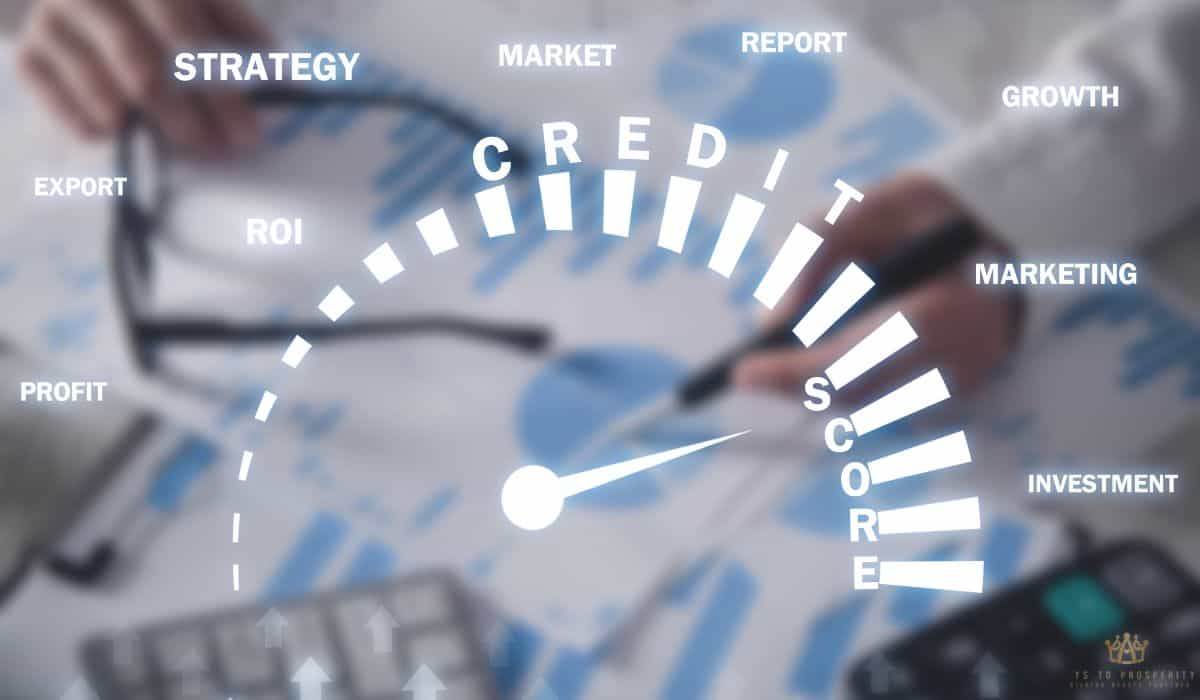Last June 26, 2025, the national average for a 30-year fixed rate mortgage sits at 6.81%. The rate’s down just a smidge from the week previously, while adjustable rate mortgages often kick off with lower initial interest rates.
Don’t be fooled, though. Those rates can swing wildly once their fixed period ends.
From our experience, that kind of unpredictability can shake up cash flow for commercial property investors. And due to this unpredictability, making the choice between a fixed vs variable rate commercial mortgage is a big deal in today’s market.
This article breaks down fixed rate loans versus variable rate loans, diving into interest rate risk, monthly payments, and long-term strategies.
It also shows readers exactly how the two options work, what risks and rewards each brings, and how smart investors can match their loan choice with long-term strategies for their commercial properties.
Curious about the bigger picture? Our previous article on the commercial mortgage application process spelled out how to navigate loan approvals with ease. Next, we’ll explore building banking relationships commercial real estate to strengthen your financing game.
For a full guide, check out our pillar page on commercial real estate bank loans, packed with insights to boost your investment strategy.
Short Summary
- Fixed rate loans keep monthly payments consistent, making budgeting easier for long-term holds.
- Variable loans can start with lower initial interest rates but may cause payments to rise if market interest rates climb.
- The Federal Reserve and secured overnight financing rate play major roles in interest rate changes impacting commercial mortgages.
- Matching your risk tolerance and investment timeline to your loan choice is key for smart commercial property financing.
Understanding Fixed Vs Variable Rate Commercial Mortgage Options
Deciding between a fixed vs variable rate commercial mortgage can be a head-scratcher.. Let’s unpack each option so you can make a smart call:
Definition And Mechanics Of Fixed Rate Commercial Mortgage
A fixed rate commercial mortgage locks in one interest rate for the entire loan term. Payments don’t move up or down, no matter what happens with market interest rates. This creates predictability that many of us appreciate when budgeting.
For example, if a property investor takes a fixed interest rate loan on a retail building for 15 years at 6.5%, the monthly payment stays exactly the same each month. That’s because the interest rate remains constant, making it easy to plan cash flow without surprises.
Benefits Of Predictable Monthly Payments For Budgeting
It’s a huge plus, having stable monthly payments. Property managers love knowing their loan payments won’t jump. It makes long-term budgeting way less stressful and helps keep the property profitable even if interest rates rise.
Variable Rate Mortgage Fundamentals
On the flip side, a variable rate mortgage, also called an adjustable rate commercial mortgage, moves with the market. After the initial period, rates can shift depending on economic factors.
Payments could go up or down, which means more risk. But sometimes, more reward.
We’ve noticed that a variable interest rate loan can start with lower initial interest rates, which helps conserve cash early on. This can be a game-changer for those planning renovations or needing extra working capital.
Connection To Market Interest Rates And Benchmarks
Variable interest rates usually track benchmarks like the prime rate or the secured overnight financing rate. So if those rates increase, so do your payments.
For instance, an investor planning to flip an office space within three years chose a variable loan. They were betting market interest rates decline or stay low during the flip. In that case, they saved thousands on payments compared to a fixed rate loan.
Role Of The Federal Reserve In Influencing Variable Interest Rates
The Federal Reserve heavily influences market interest rates. A single Fed announcement can cause variable rate loans to adjust almost overnight. Staying updated on Fed policy helps investors predict how interest rates climb or drop.
Key Differences In Loan Structure And Terms
- Fixed rate loans usually offer longer loan terms, like 10-30 years.
- Variable rate loans might have shorter terms or an initial fixed period before rates adjust.
The loan origination process can differ, too. Lenders often require more paperwork and scrutiny for adjustable rate mortgages because of the potential risk.
Impact On Long Term Financing Strategies
Your loan amount and outstanding balance can affect which option works better. If an investor plans to hold a property long-term, we’ve found fixed rates often make more sense, since the interest rate remains fixed and protects against rising costs.
On the other hand, for shorter holds or when market rates look like they’ll stay low, variable rates might help keep borrowing costs down.
When comparing options, remember:
- Predictable fixed rate mortgage payments can stabilize cash flow.
- Variable loan payments might start lower but could jump if market interest changes.
From what we’ve seen, investors who match their risk tolerance with the right mortgage type sleep better at night. And that’s what matters most!
Analyzing Interest Rate Risk and Market Dynamics
Many investors feel anxious about the impact of interest rate swings on their financing plans. We’ve helped plenty of commercial buyers sort through these worries.
Here’s what we’ve learned about handling interest rate risk, reading market signals, and making confident choices when it comes to fixed vs variable rate commercial mortgage options.
Understanding Interest Rate Risk In Commercial Mortgages
Interest rate risk comes from the chance that borrowing costs jump during your loan term. Fixed loans lock in a stable cost, but variable interest loans leave payments open to market changes.
For example, if the Federal Reserve raises rates suddenly, a variable loan could see payments double over a few years.
How Rising Interest Rates Affect Variable Rate Loans Differently
Variable loans are more sensitive to shifts in market interest rates. A small uptick from the Fed can lead to a noticeable bump in monthly payments. We’ve seen investors with variable rate mortgages struggle when interest rates climb quickly.
Protection Strategies When Interest Rates Climb Unexpectedly
Some lenders offer interest rate caps to limit how high your rate can go. This protection can cushion against huge payment spikes.
- Consider negotiating a cap when starting a variable rate mortgage.
- Check if the cap applies for the entire loan term or resets at intervals.
Market Interest Rate Trends And Federal Reserve Influence
The Fed’s policy decisions guide market interest. Even rumors about a rate hike can shift rates overnight. Keeping an eye on the Fed’s announcements helps with timing your decision.
Current Interest Rate Environment and Future Predictions
Right now, rates are bouncing around historical averages. Economists predict possible hikes if inflation heats up. Others see market interest rates decline if economic growth slows.
How The Secured Overnight Financing Rate Impacts Commercial Lending
The secured overnight financing rate (SOFR) replaced LIBOR as a benchmark. Many adjustable rate mortgages now link to SOFR. This means your variable loan could change if SOFR shifts, directly affecting borrowing costs.
Scenarios When Market Interest Rates Decline Vs. When They Rise
- When interest rates fall, variable loans become cheaper and can save thousands in payments.
- If interest rates rise, fixed loans shield your payments from ballooning.
Timing Considerations For Rate Selection
Choosing between fixed rate loans and variable rate loans depends on timing.
- Fixed loans make sense if rates seem likely to rise soon.
- Variable rates offer savings when rates look stable or expected to drop.
Optimal Conditions For Choosing Fixed Interest Rate Loans
- Long-term property holds need steady cash flow.
- Risk-averse investors who prefer knowing exactly what payments will be.
When Variable Interest Rate Loans Offer Competitive Advantages
- Short-term projects where lower initial payments free up cash.
- Situations where market signals point to stable or dropping rates.
Market Timing Strategies For Commercial Mortgage Decisions
Some smart investors wait for small dips in rates before locking in a fixed rate mortgage. Others grab a variable interest rate loan early in an expansion cycle, hoping interest rates remain fixed or low long enough to maximize cost savings.
Learning these strategies helps commercial investors avoid feeling swamped by rate changes and build confidence in every financing move.
Cash Flow Impact And Financial Planning Considerations
Choosing a fixed vs variable rate commercial mortgage affects more than just the rate itself. It shapes cash flow, budget stability, and overall investment strategy. Let’s look at what really happens to your monthly budget and how to plan smartly.
Monthly Payment Structure Differences
Fixed rate loans keep monthly payments the same from start to finish. This stability makes planning way easier. We’ve found it helps avoid surprise costs, especially if interest rates rise later.
Variable loans bring moving parts. Payments change with market rates, which can complicate budgeting. Investors often need backup cash on hand for when interest rates climb.
How Fixed Rate Loans Provide Consistent Monthly Payments
With a fixed rate mortgage, the interest rate remains constant. Payments never shift, no matter what the Federal Reserve does or how the economy changes.
For example, an investor leasing out a warehouse locked in a 20-year fixed interest rate loan. They enjoyed reliable loan payments, which matched perfectly with steady rent income.
Variable Loan Payment Fluctuations And Budgeting Challenges
Variable rate mortgages tie payments to market benchmarks like the prime rate. Payments can drop when market interest rates decline, but they can jump quickly if rates rise.
For instance, a buyer of a small office building took a variable interest rate loan expecting stable rates. When inflation spiked, their payments shot up, straining cash flow.
Impact On Cash Flow Management For Commercial Properties
Smooth cash flow is key for keeping tenants happy and maintenance on track. Fixed loans simplify projections, letting investors plan upgrades or repairs.
Variable loans add unpredictability. That can make it tougher to schedule improvements if payments suddenly rise.
Initial Cost Comparison And Long-Term Implications
Variable loans can shine early on. Lower initial interest rates mean lower initial payments, freeing up money for renovations or marketing. However, if you plan to hold the property for a long time, rising rates can wipe out those early savings.
Calculating Total Borrowing Costs Over the Loan Term
It’s essential to compare the entire loan term cost, not just starting rates. Tools like mortgage calculators can help estimate how much you’ll really pay under different rate scenarios.
Risk Tolerance Assessment For Property Investors
- Fixed loans suit those wanting certainty and stability.
- Variable loans fit risk-tolerant investors who can handle changing loan payments.
Matching Mortgage Type To Investor Risk Profile
Knowing your comfort level with payment swings helps match you to the right loan. Investors who lose sleep over unpredictability should lean toward fixed rate loans.
Cost Savings Potential Vs. Payment Uncertainty
- Variable loans may cut costs early but add payment risk later.
- Fixed loans avoid surprises but might cost more upfront.
Portfolio Diversification Strategies With Different Rate Types
Some investors blend both. They use a fixed rate commercial mortgage on long-term holds while financing short-term flips with adjustable rate mortgages. This spreads risk and can improve overall cash flow stability.
Mastering these details gives investors an edge. It helps them keep finances steady no matter how market interest rates move.
Making the Right Choice for Your Commercial Investment
Picking fixed or variable rate commercial mortgage isn’t a straightforward affair, though. Let’s break down what to weigh before signing on the dotted line.
Factors To Consider When Selecting Mortgage Type
A few details should steer your choice:
- Property type: Warehouses or industrial spaces with steady tenants often do well with fixed rate loans. Retail properties with seasonal swings might benefit from variable rate loans early on.
- Location: Markets with stable rents can handle fixed rate mortgage payments better. Fast-growing areas might favor variable interest rates if you expect market interest rates to stay low.
- Investment timeline: Long-term plans point to fixed loans, while short-term flips lean toward variable options.
Personal Financial Situation And Cash Flow Requirements
Investors with tight monthly budgets should consider the stability of a fixed interest rate loan. Those with flexible cash flow can handle variable loan swings better.
Smart buyers almost double their payments when interest rates climb, which can catch unprepared owners off guard.
Market Conditions And Interest Rate Forecasting
Watching market interest trends is the key. When signs point to interest rates rise, fixed loans shield you from payment hikes. If experts expect interest rates decline, variable loans can reduce borrowing costs.
When Fixed Rate Mortgages Make Sense
- Long-term holds where consistent monthly payments are needed.
- Situations where the interest rate remains fixed keeps risk down.
Scenarios Favoring Interest Rate Stability
- Properties with tight margins can’t afford unexpected payment increases.
- Investors planning renovations over years benefit from stable payments.
Long-Term Hold Strategies And Fixed Rate Benefits
Fixed loans work well for buy-and-hold strategies. Knowing payments won’t change helps plan maintenance, improvements, and leasing.
Protection Against Interest Rate Volatility
Locking in a fixed rate commercial mortgage protects you if the Federal Reserve increases rates. This insulation preserves cash flow during market swings.
Optimal Situations For Variable Rate Selection
- Short-term investments with plans to sell or refinance quickly.
- Buyers expect market interest rates to stay low.
Short-Term Investment Horizons And Rate Advantages
Variable loans keep lower initial payments, freeing funds for immediate upgrades. For example, investors rehabbing small office buildings sometimes use variable interest rate loans to stretch early budgets.
Market Conditions Favoring Adjustable Rate Commercial Mortgages
- Stable or falling market rates make adjustable loans appealing.
- Competitive lending environments where banks offer attractive variable rate mortgage terms.
Refinancing Strategies And Rate Flexibility Benefits
Some investors start with variable loans to benefit from lower initial interest rates, then refinance into fixed rate loans later. This strategy can balance early savings with long-term stability.
Getting this choice right can set you up for success. Knowing your property’s needs, personal finances, and the market helps you choose the best path.
Final Thoughts
Choosing between fixed or variable rate commercial mortgage comes down to your goals, comfort with risk, and how you see the market moving. Looking at your cash flow needs and investment timeline will guide you to the right option.
Our team loves helping investors make sense of these choices, so don’t hesitate to reach out for personalized advice. Want more tips on growing your commercial property investments? Visit our homepage and let’s keep building success together.
Frequently Asked Questions
What’s the Biggest Difference Between Fixed and Variable Rate Commercial Mortgages?
The main difference is payment stability. A fixed interest rate loan keeps payments steady for the entire loan term, while a variable rate mortgage can see payments change with market rates.
When Should I Consider a Fixed Rate Commercial Mortgage?
Fixed loans are a good choice if you plan to hold a property long-term or need predictable monthly payments. This helps protect cash flow when interest rates rise unexpectedly.
Can I Switch from a Variable to a Fixed Rate Mortgage Later?
Yes, many investors refinance their variable interest rate loan into a fixed rate mortgage when market conditions change or when they want stable payments. Always weigh the borrowing costs of refinancing first.
How do Interest Rate Caps Help with Variable Loans?
Interest rate caps limit how high your variable interest rate loan can adjust. They help keep payments manageable if market interest rates climb, adding a layer of protection to your cash flow.






